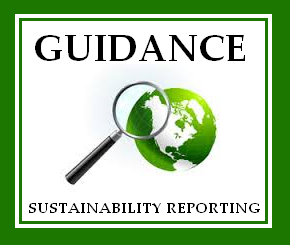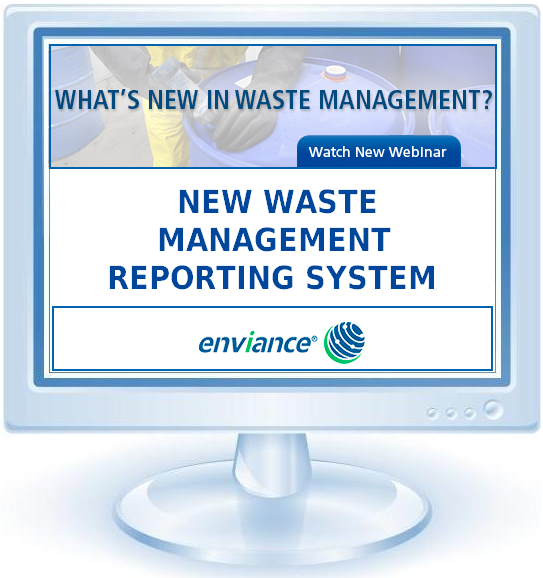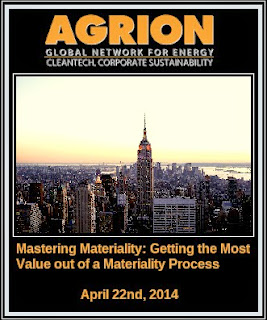The fifth GRI Global Conference will take place on May 18 - 20, 2016 in Amsterdam, the Netherlands. Up to 1,500 sustainability leaders from around the globe will be present to exchange leading-edge knowledge on best practices, innovations and trends that are empowering sustainable decisions and changing the world. GRI is the globally accepted standard for enabling business, governments and other organizations to understand and communicate their impacts on critical sustainability issues.
The Conference will be an inclusive platform to inspire and engage a truly global network of sustainability leaders. As we move towards a new era of sustainability, it is clear that for information to truly empower decision making it must be more accessible, comparable and available in real time. The focus of the GRI 2016 Conference is to embrace this new era and accelerate progress by delivering innovative sustainability content and by building capability. Those in attendance will help shape the future of sustainable decision making.
Why Attend?
The 5th GRI Conference will create an inclusive platform to inspire and engage a truly global network of sustainability leaders. GRI’s focus at the 2016 Conference is to deliver innovative sustainability content that embraces this new era, enable capacity building, networking, and peer-to-peer learning.
Be inspired and contribute to solutions for sustainability challenges and build your own knowledge; exchange thought leadership in session discussions, share experiences and triumphs through peer to peer learning and take away tools from engaging master classes.
Consider new ways to approach solutions, see a showcase of global commitments, services and products in the marketplace.
Gain access to GRI’s global network and engage with sustainability leaders to bring their insights into your initiatives, seek new and lasting collaborations with potential clients and partners.
About GRI
GRI pioneered sustainability reporting in the late 1990’s and today provides the architecture for sustainability information through GRI Sustainability Reporting Standards, the engine for this data. GRI Standards are foundational to the organization’s work towards its vision of a future where sustainability is integral to every organization’s decision-making process. This enables business, governments and other organizations to understand and communicate their impacts on critical sustainability issues.
To see the program click here.
To register click here.
Related
Best Practice in Sustainability Reporting and Sustainability Communications
New GRI Sustainability Reporting Tools and Resources
Comprehensive Summary of Sustainability Reporting Guidance
Sustainability Reporting Attracts Investors and Improves ROI (Video)
Why Investors Want More Nonfinancial Information
France Makes Sustainability Reporting Mandatory
The Future of Integrated Sustainability Reporting
Sustainability Reporting to Minimize Negative Impacts and Increase Positive Benefits
Sustainability Reporting: Video of Company efforts to Engage New GRI G4 Guidelines
Webinar - Sustainability Reporting to GRI G4: Time to Make The Switch
Meaningfull Change to Make CR Reporting Pay: Inverviews
Video - Corporate Sustainability Report 2013: The Way to Long
The Future of Integrated Sustainability Reporting (2012)
The Conference will be an inclusive platform to inspire and engage a truly global network of sustainability leaders. As we move towards a new era of sustainability, it is clear that for information to truly empower decision making it must be more accessible, comparable and available in real time. The focus of the GRI 2016 Conference is to embrace this new era and accelerate progress by delivering innovative sustainability content and by building capability. Those in attendance will help shape the future of sustainable decision making.
Why Attend?
The 5th GRI Conference will create an inclusive platform to inspire and engage a truly global network of sustainability leaders. GRI’s focus at the 2016 Conference is to deliver innovative sustainability content that embraces this new era, enable capacity building, networking, and peer-to-peer learning.
Be inspired and contribute to solutions for sustainability challenges and build your own knowledge; exchange thought leadership in session discussions, share experiences and triumphs through peer to peer learning and take away tools from engaging master classes.
Consider new ways to approach solutions, see a showcase of global commitments, services and products in the marketplace.
Gain access to GRI’s global network and engage with sustainability leaders to bring their insights into your initiatives, seek new and lasting collaborations with potential clients and partners.
About GRI
GRI pioneered sustainability reporting in the late 1990’s and today provides the architecture for sustainability information through GRI Sustainability Reporting Standards, the engine for this data. GRI Standards are foundational to the organization’s work towards its vision of a future where sustainability is integral to every organization’s decision-making process. This enables business, governments and other organizations to understand and communicate their impacts on critical sustainability issues.
To see the program click here.
To register click here.
Related
Best Practice in Sustainability Reporting and Sustainability Communications
New GRI Sustainability Reporting Tools and Resources
Comprehensive Summary of Sustainability Reporting Guidance
Sustainability Reporting Attracts Investors and Improves ROI (Video)
Why Investors Want More Nonfinancial Information
France Makes Sustainability Reporting Mandatory
The Future of Integrated Sustainability Reporting
Sustainability Reporting to Minimize Negative Impacts and Increase Positive Benefits
Sustainability Reporting: Video of Company efforts to Engage New GRI G4 Guidelines
Webinar - Sustainability Reporting to GRI G4: Time to Make The Switch
Meaningfull Change to Make CR Reporting Pay: Inverviews
Video - Corporate Sustainability Report 2013: The Way to Long
The Future of Integrated Sustainability Reporting (2012)


















